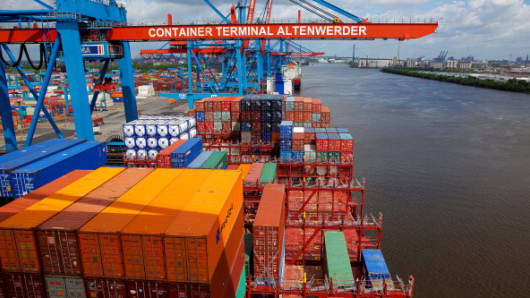China's growth data may have been welcomed with a sigh of relief by markets, but it is unlikely to reassure Europe's powerhouse Germany, which is already experiencing a rapid decline in exports to the country.
Around 6 percent of Germany's exports go to China – its fifth largest trading partner in 2012 in terms of exports. Some 67 billion euros ($87 billion) of goods were shipped to the Asian nation last year, compared with 104 billion euros to France and 87 billion to the United States.
But China's gross domestic product (GDP) slowed in the second quarter, coming in at 7.5 percent year-on-year, down from 7.7 percent in the first three months of the year. It followed disappointing import data for China, which missed expectations by a wide margin last Wednesday, declining 0.7 percent year-on-year in June, against a forecast of a rise of 8 percent.
"A Chinese slowdown would indeed be a cause of concern for the German economy," Carsten Brzeski, a senior economist at ING based in Brussels, told CNBC, adding that if it turns into a longer-lasting investment drought, it would mean a lot more than just a temporary drop in car sales for German firms.
(Read More: Goldilocks Chinese GDP a little too perfect for some)
The poor run of data comes at a time when the country's new leadership is stepping up regulation, curbing an overheated credit market and switching an export-focused economy into a consumer-driven one.
So far the government has signaled that its monetary policy stance will remain tight to contain financial risks, but this latest round of data is set to test its resolve further on how much of a growth slowdown it is willing to tolerate.
"The big story is [China's] inability to finance the investment boom, and the fact that the investment boom is collapsing under its own weight - that's what's really has been driving Chinese growth up until now," Patrick Chovanec, managing director and chief strategist at Silvercrest Asset Management, told CNBC on Friday.





